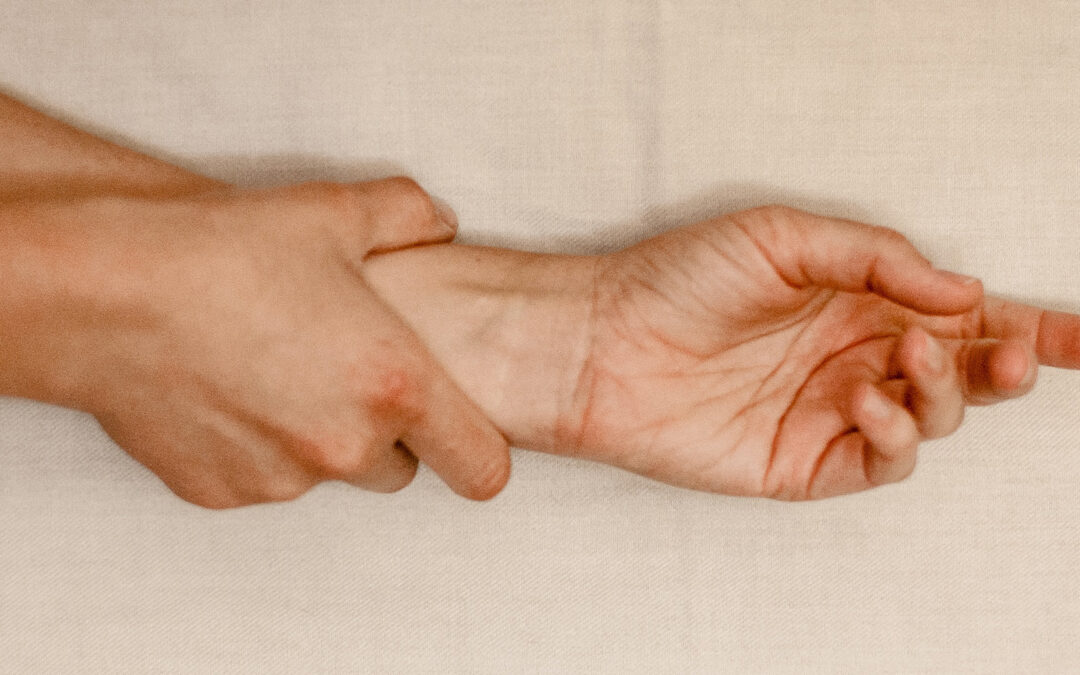Anyone who has experienced Carpal Tunnel Syndrome (CTS) knows it can be anywhere from an annoyance to completely debilitating. There seems to be a correlation between our increased use of computers and Carpal Tunnel Syndrome (even though the research is not complete on this relationship).
What is carpal tunnel syndrome?
According to the National Institute of Neurological Disorders and Strokes, carpal tunnel syndrome occurs when the median nerve, which runs from the forearm into the palm of the hand, becomes pressed or squeezed at the wrist.
The median nerve in the carpal (from Latin for carpus meaning wrist) tunnel provides feeling to the palm side of the thumb to the index, middle, and part of the ring finger. It also controls some small muscles at the base of the thumb.
Causes
Carpal Tunnel Syndrome can be caused by a combination of factors that increase pressure on the median nerve and tendons in the carpal tunnel. Some of the factors:
- Trauma or injury to the wrist that cause swelling
- Overactive pituitary gland
- Underactive thyroid gland
- Rheumatoid arthritis
- Repeated use of vibrating hand tools
- Fluid retention during pregnancy or menopause
- Development of a cyst or tumor in the tunnel
Who is at risk?
Women are three times more likely than men to develop carpal tunnel syndrome. People who have diabetes and other metabolic disorders that directly affect the body’s nerves are also more susceptible.
Shockingly, the data shows assembly line work to be a bigger workplace factor for developing CTS than computer-focused jobs. According to the Mayo Clinic, there have been studies on the association between computer use and CTS. Some evidence suggests it is the mouse use, not the use of the keyboard, that may be the problem. With that said, there hasn’t been enough rigorous evidence to support extensive computer use as a risk factor.
Treatments
If your carpal tunnel gets to an extreme place and the severity of the pain is not manageable, surgery may be a consideration. But before that point there are several things that can be done to ease the effects of CTS:
- Breaks. Take more-frequent breaks to rest your hands.
- Avoid. Try your best to avoid activities that make symptoms worse.
- Ice. Apply cold packs to reduce swelling.
- Wrist Splinting. It holds your wrist still. And when you do it during the night it can help prevent daytime symptoms.
- Nonsteroidal anti-inflammatory drugs (NSAIDS). Ibuprofen is useful in relieving the pain in the short term.
- Corticosteroids. A cortisone shot by your doctor may decrease inflammation and swelling which will relieve the pressure on the median nerve.
- Acupuncture and other alternative therapies like yoga.
Acupuncture for Carpal Tunnel Syndrome
Acupuncture is definitely a course of action to help deal with your carpal tunnel syndrome- especially if you don’t like taking over-the-counter pain medications or they are not working, and definitely if you want to try to avoid cortisone shots or surgery. Let’s dive deeper into how acupuncture and oriental medicine can help you with the pain and numbness.
What is the cause of carpal tunnel syndrome, according to oriental medicine?
Carpal tunnel syndrome is caused by a too-intense use of one part of the wrist. Often the symptoms are experienced by drummers, writers, and computer users.
What are some ways acupuncture can help with carpal tunnel?
When the muscles are stretched, the nerves are stretched which is accompanied by pain. In this case, western medicine will prescribe anti-inflammation medicine. In oriental medicine, and one of the main principles of acupuncture, creating moderation will bring the body back into balance. Our body has an instinct to return to its place. Oriental medicine will help to return those stretched parts of the body back to their place. In this case it’s the ligaments, muscles, and nerves in the wrist that need help. This is a long-term treatment, not just a temporary fix.
How does herbal medicine help with carpal tunnel?
Herbal medicine has similar effects to anti-inflammatory medicine for stretching and swelling muscles. Because we use all-natural ingredients, no chemicals, it is better for the body and it will last longer when the body heals.
What are some examples of herbal medicines that Dr. Ko might prescribe?
- Achyranthis Bidentatae, Radix (niú xī)
- Corydalis, Rhizoma (Yan Hu Suo),
- Clematidis, Radix et Rhizoma (Wei Ling Xian),
- Saposhnikoviae, Radix (Fang Feng)
Getting started with acupuncture
If you are ready to explore acupuncture, oriental medicine, and herbal remedies as a treatment for your carpal tunnel book your initial consultation with 120 Acupuncture today. In your initial visit, Dr. Ko will work with you to create a custom plan that will support your path to wellness and guide you toward fixing the pain and numbness in your hand, wrist, and fingers.







